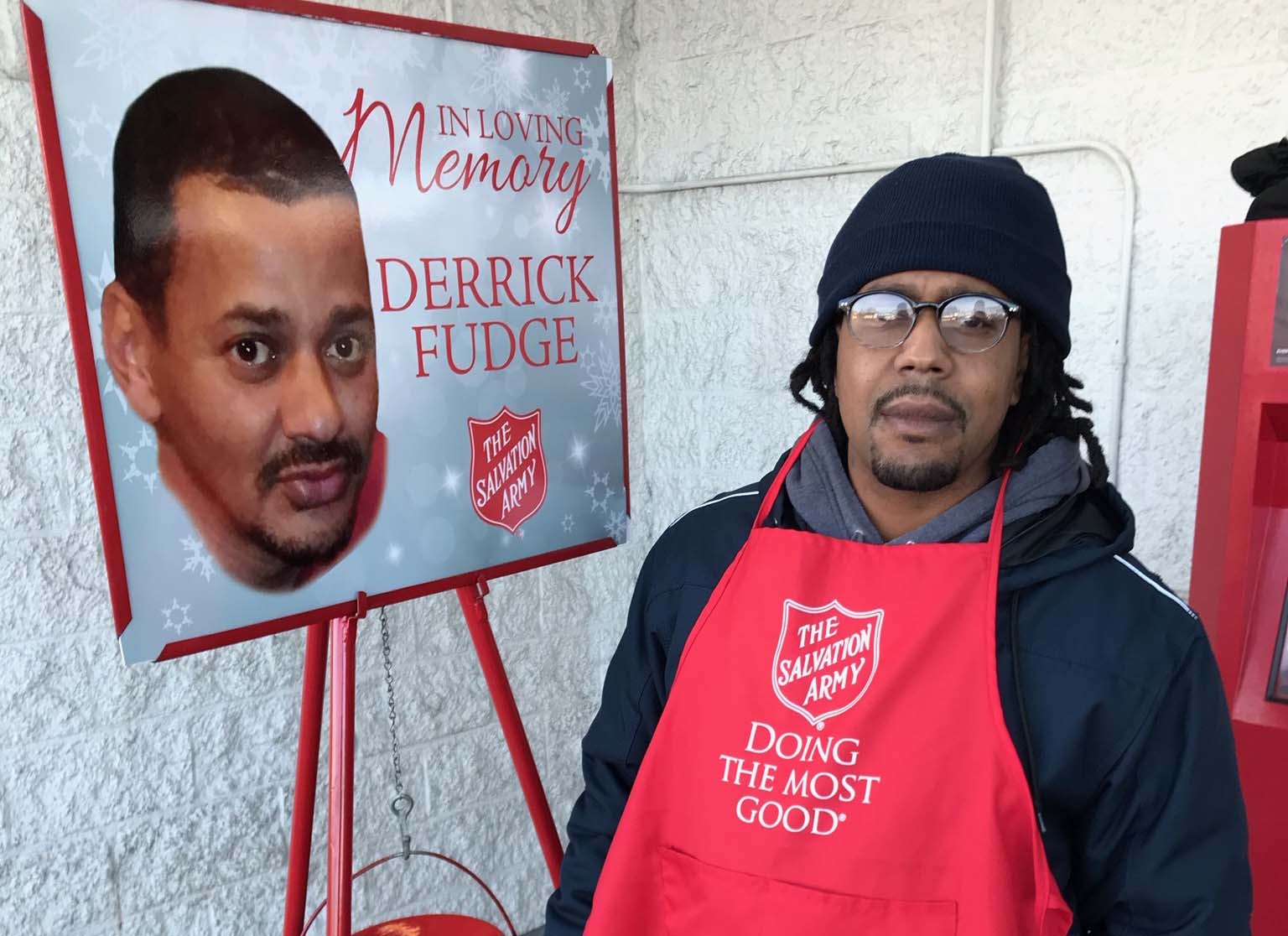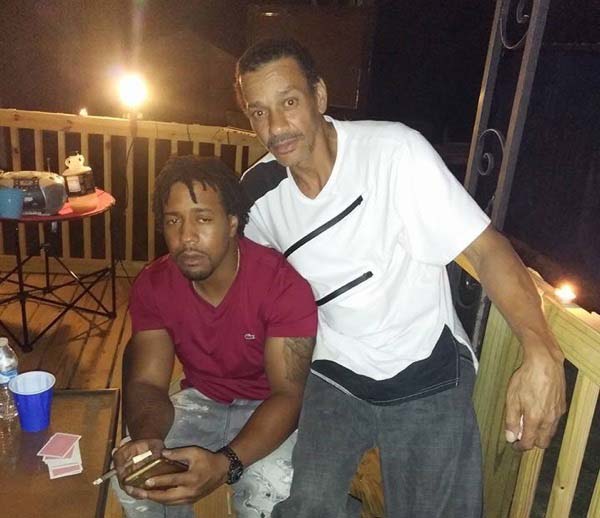
My Father, My Friend.
Editor’s Note: This Gun Violence Prevention Month, we’re sharing the stories of people personally impacted by gun violence. You can read more here.
My dad was murdered in Dayton. Nobody should have to know how that feels.
When I was growing up, my father Derrick Fudge was a stern man. But as I got older, he became my friend. He loved the Pittsburgh Steelers. He was a devoted bell ringer for the Salvation Army. And in his free time, he went fishing.
Going fishing together is how we started to bond as adults. We’d argue, like people do. Like families do. I’d give anything to be able to argue with him now.

August 4th, 2019, started out as a great day. In the weeks prior, I’d been busy rebuilding my house that was badly hit by the tornadoes that ravaged Dayton in May. But it was beautiful weather that day, so I left the house for the first time in months. I went canoeing on the Mad River and felt alive again. Later, I saw my family at my mom’s house in Springfield for the first time since the tornadoes. Because I was in such a good mood, I called up some family and friends and convinced a group to go out that night in downtown Dayton.
My dad fell asleep on the drive there. I didn’t think he’d even leave the car, but he insisted on having a good time with us. But once he got on the dance floor, he let loose and had a blast. I was happy to see everyone enjoying themselves.
A security guard said my dad was dancing inappropriately, but I can assure you he was keeping an appropriate distance from other people—I have the video to prove it! But it was late and I was tired so we agreed to wait outside for my sister Megan and her husband.
That was when August 4th went from one one of the best days of my life to the absolute worst. A tall, slender man appeared wearing a mask and body armor. He fired a few shots. This is a joke, I thought. There’s lots of police around here. He’s just being drunk and stupid, right? He walked through a row of cars, right past us. As he crossed the street towards the club, he started shooting nonstop. It sounded like a war zone.
People panicked when they heard the shots. They ran, screamed, jumped behind cars. This is not real, I thought. I looked around at my dad and girlfriend. Thankfully nobody’s hurt. This is crazy.
Then someone next to me cried out that they were shot and asked me to call the cops. I turned to help them and tried calling but the lines were all busy. While I waited for an answer, I turned back to my dad.
“Hey Dad, get up,” I said. “We need to get out of here.” He didn’t move. He lay on the asphalt with his eyes open, breathing like a fish out of water. I turned on my phone’s flashlight and moved the light up his feet, legs, chest, arms—all fine. Then I saw his head and shoulder soaked in a puddle of blood.
I lost all feeling. I dropped to the ground. I was numb but started performing CPR. “Please get up, Dad.” He was slowly leaving me. “I love you, Dad. Please get up.” He never got up.
I’ll never forget that terrible night. The grief still feels raw. I’m seeking therapy, and some days I can talk about what happened and how I’m feeling. Other days, speaking about losing my father is unbearable.
I share my story because I want people to know that life is not a given. I’m so glad I got to rebuild my relationship with my dad before he was killed. I think everyone should make right with their friends and loved ones before it’s too late, because not even a minute is guaranteed.
To honor my dad’s memory, I started a nonprofit called Flourishing Under Distress Given Encouragement, or FUDGE, my father’s last name. The goal is to help survivors and victims of gun violence as they try to overcome tragedy.
Depression after something like this can take over you—it’s a struggle I’m still dealing with. I hope to help others get their lives back through guidance and support. It’s also why I wrote a memoir: to provide encouragement and strength to anyone overcoming a life-changing event.
I miss my dad every day. I miss fishing with him, and getting to know him better. We need better policies on where guns are being sold and who they’re being sold to, so we can prevent these tragedies from happening to other communities around the country.